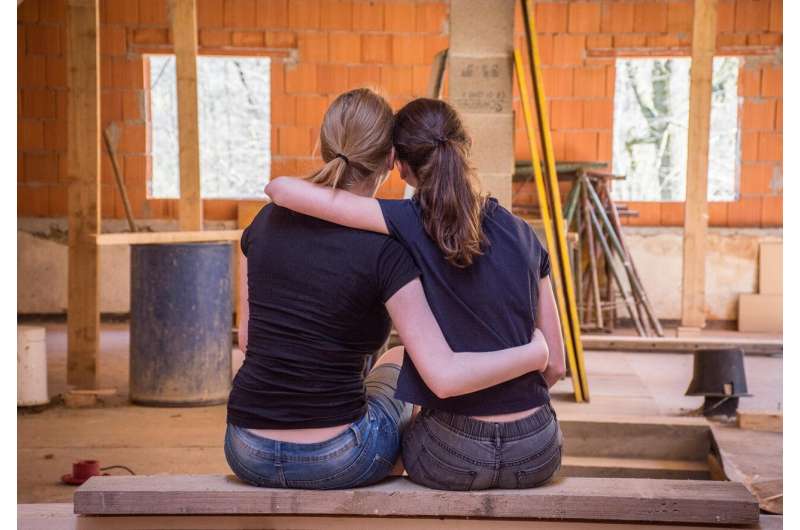
It’s common to feel uncomfortable with different aspects of our bodies or to want to make small changes here and there. However, sometimes this dissatisfaction can start to become a burden on our mental and physical health. Here are some tips for helping a friend who may be struggling with negative body image and where to find support.
What is body image?
Body image refers to the way we view our physical appearance and how we imagine our bodies look to others. People with positive body image generally feel comfortable and confident in their bodies, while people with negative body image may feel anxious, awkward or ashamed about their bodies. It’s important to keep in mind that we may view our bodies in a distorted or inaccurate way that may not always align with reality.
Someone who is struggling with negative body image may:
- Make negative comments about their size, shape or appearance.
- Weigh themselves often and/or feel upset about slight fluctuations in weight.
- Obsess over their appearance or nitpick different aspects of their body.
- Try to conceal their body with loose or baggy clothing.
- Avoid social events or other activities that require a certain dress code (e.g. swimming).
- Make ongoing efforts to lose weight, often through extreme dieting or intense exercise.
It’s important to remember that negative body image can impact anyone, regardless of their identity, age, gender or body size.
How can I support a friend with negative body image?
Depending on how intensely someone experiences negative body image, it can be a difficult issue to overcome. Here are some ways you can support a friend who may be experiencing negative body image.
Be open and honest about your concerns.
If you’re concerned about a friend’s behavior, let them know privately. Try to provide specific examples of times when you felt worried or concerned about them (e.g. they avoided an event or occasion because of food or body concerns, they were particularly critical of themselves, their eating or exercise habits changed, etc.). Be sure to use “I” statements when expressing your concerns. Here are a few examples you can use:
- “I feel sad when I hear you speak critically about yourself and your body.”
- “I feel concerned when I see you skip meals.”
- “I feel worried when you weigh yourself repeatedly.”
Allow your friend time to process and respond to conversations you have around body image, especially if you’re feeling concerned. Approaching your friend with compassion can go a long way. Avoid trying to diagnose or label your friend’s habits or experience.
Set an example
People may engage in negative self-talk without even realizing it. Commenting on our appearance, physical activity or eating habits can be commonplace in some friendships or relationships. If your friend is struggling with negative body image, sometimes the best thing we can do is set a positive example. Practicing self-acceptance and self-compassion allows us to hold space not only for ourselves, but for our friends as well. It’s also helpful to avoid making negative comments about your own body and others.”
Build them up
Remind your friends that you love them for who they are, not what they look like. While there is nothing wrong with complimenting your friend on their appearance, it can sometimes be more helpful to focus on things that are completely unrelated to what they look like. For instance, you may let your friend know how funny they are, how brave they are, how smart they are or how great of a person they are. Focusing on inner qualities can help shift attention away from someone’s appearance and let them know they are valued as a person.
Unfollow accounts on social media
Social media can impact our self-esteem, even if it’s not obvious. If you or your friend follow accounts that impact your body image, self-esteem, self-worth or are negatively impacting your mental health: unfollow them. Instead, seek out accounts that promote body positivity (or body neutrality) and self-love.
Be proactive
Source: Read Full Article
